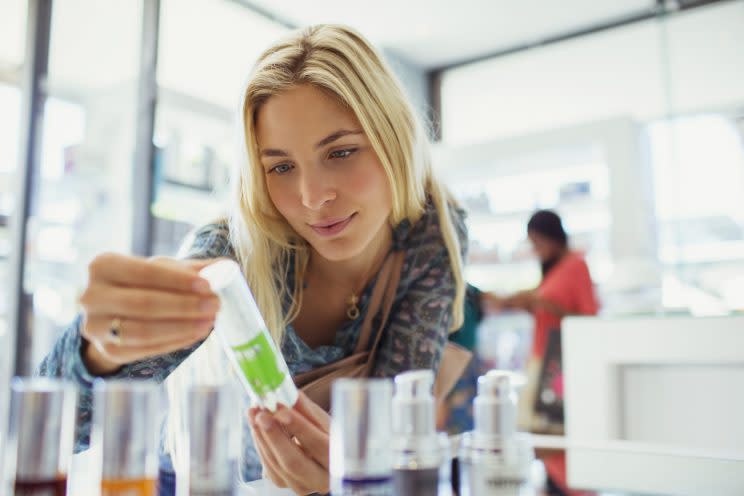Congress May Make Cosmetics Companies Answer to the FDA

It seems kind of obvious that consumers want to know whether anything in our soaps, lotions, and makeup is going to kill us. Or give us an unsightly rash. But at the moment, the Food and Drug Administration has very little to do with regulating cosmetics and skincare. That might change, if the Senate gives the Personal Care Products Safety Act a chance.
Whereas right now the FDA can only regulate the color additives in cosmetics and prohibit the sale of “adulterated or misbranded” products in interstate commerce, this would give the agency a lot more control over ingredients and manufacturing practices.
The Personal Care Products Safety Act would require manufacturers to print all their ingredients on product labels and online, include warnings about ingredients that aren’t safe for children, and provide the FDA with safety recall information. The FDA would also have to review at least five ingredients each year to determine their safety. The first round of those ingredients would include: diazolidinyl urea (a preservative that releases formaldehyde), lead acetate (a neurotoxin used in hair dye), methylene glycol/formaldehyde (a carcinogen), propylparaben (which possibly interferes with hormones), and Quaternium-15 (an allergen that releases formaldehyde).
Democratic Sen. Dianne Feinstein of California and Republican Sen. Susan Collins of Maine introduced the bill Thursday. Or, shall we say, they reintroduced it. A previous version was introduced in 2015, but groups representing small businesses protested that it would place an undue burden on them. No one wanted their local handmade soap crafters to go under, after all. The latest version eases the regulations of businesses that made less than $2 million of the previous three years.
“Despite the universal use of these products, none of their ingredients have been independently evaluated for safety,” Feinstein said in a press release. “This puts consumer’s heath at risk and we urgently need to update the nearly 80-year-old safety rules. In contrast, Europe and Canada have robust systems with strong consumer protections including ingredient review and product registration.”
Perhaps surprisingly, a lot of major cosmetics companies — Estée Lauder, L’Oreal, Johnson & Johnson, Revlon, Unilever, Proctor & Gamble — have been advocates of this bill for a while now. That doesn’t mean this is going to be smooth sailing. This is, after all, the same Congress that has been lifting regulations on everything from coal mining rules to internet privacy, all in the name of helping business. President Trump went so far in his anti-regulation stance as to sign an executive order requiring federal agencies to repeal two regulations for every new one put in place.
One ray of hope for the bill’s supporters is the fact that in 2015, when hardly anything else could get passed, the Microbead Free Waters Act of 2015 had nearly unanimous, bipartisan support in both houses.
Read more from Yahoo Style + Beauty:
Watch This Makeup Artist Magically Paint ‘Beauty and the Beast’ on Her Chest
5 Weird Beauty Moments in April: From Hard-Boiled-Egg Beauty Blenders to Barbed-Wire Brows
Follow us on Instagram, Facebook, and Pinterest for nonstop inspiration delivered fresh to your feed, every day. For Twitter updates, follow @YahooStyle and @YahooBeauty.
